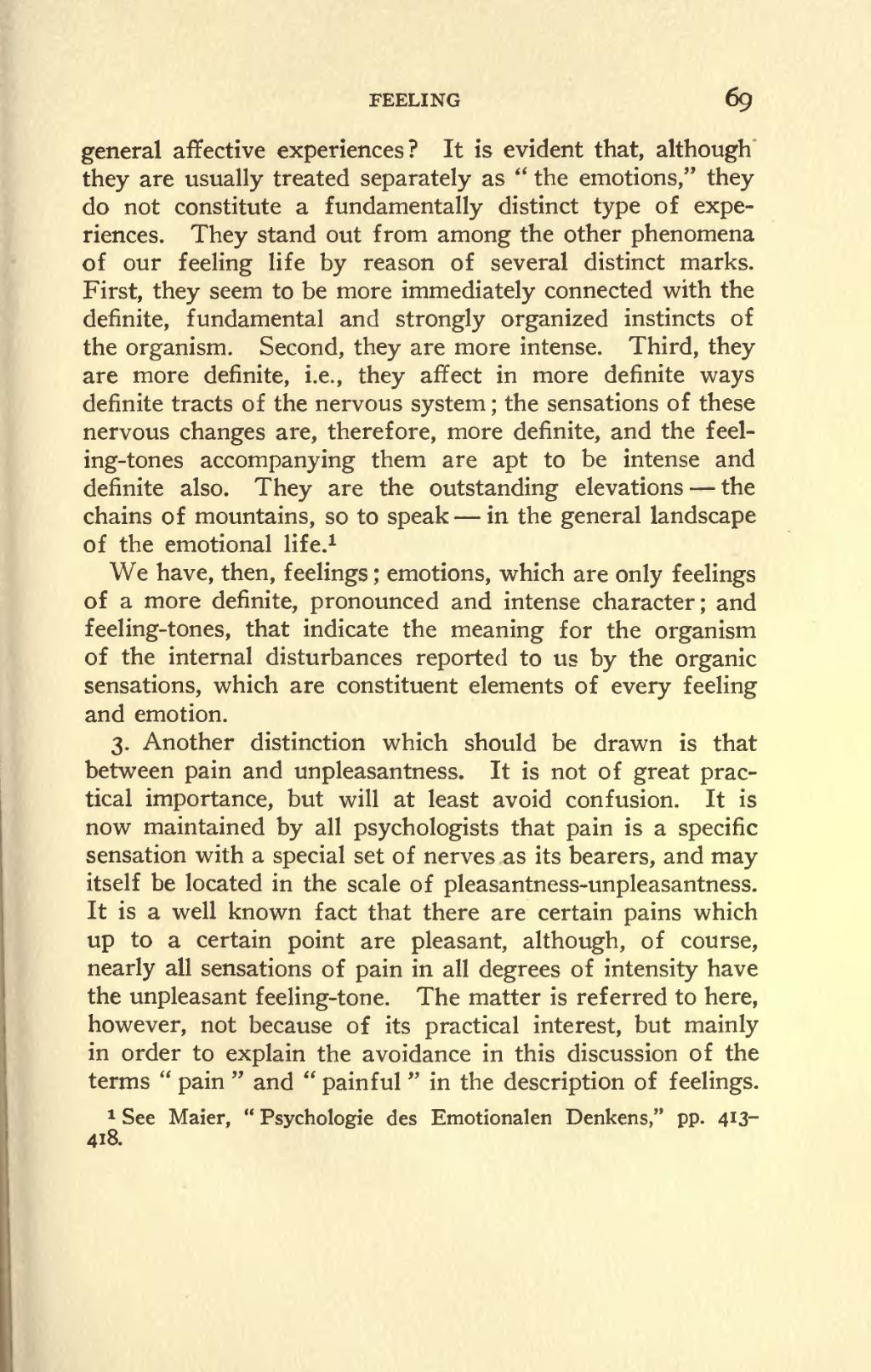FEELING 69
general affective experiences? It is evident that, although they are usually treated separately as " the emotions," they do not constitute a fundamentally distinct type of expe riences. They stand out from among the other phenomena of our feeling life by reason of several distinct marks. First, they seem to be more immediately connected with the definite, fundamental and strongly organized instincts of the organism. Second, they are more intense. Third, they are more definite, i.e., they affect in more definite ways definite tracts of the nervous system ; the sensations of these nervous changes are, therefore, more definite, and the feel ing-tones accompanying them are apt to be intense and definite also. They are the outstanding elevations the chains of mountains, so to speak in the general landscape of the emotional life. 1
We have, then, feelings ; emotions, which are only feelings of a more definite, pronounced and intense character; and feeling-tones, that indicate the meaning for the organism of the internal disturbances reported to us by the organic sensations, which are constituent elements of every feeling and emotion.
3. Another distinction which should be drawn is that between pain and unpleasantness. It is not of great prac tical importance, but will at least avoid confusion. It is now maintained by all psychologists that pain is a specific sensation with a special set of nerves, as its bearers, and may itself be located in the scale of pleasantness-unpleasantness. It is a well known fact that there are certain pains which up to a certain point are pleasant, although, of course, nearly all sensations of pain in all degrees of intensity have the unpleasant feeling-tone. The matter is referred to here, however, not because of its practical interest, but mainly in order to explain the avoidance in this discussion of the terms " pain " and " painful " in the description of feelings.
1 See Maier, " Psychologic des Emotionalen Denkens," pp. 413- 418.
�� �
